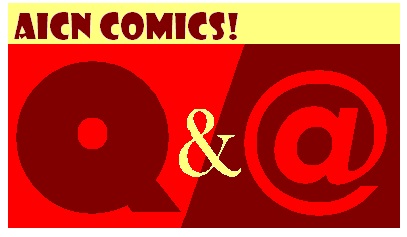
@’s by J. Michael Straczynski!!!
I recently was able to talk with Joe’s eponymous Joe Straczynski about Joe’s Comics’ turbulent past, brighter tomorrow and what will make his intellectual property house so different than all the rest.
 OPTIMOUS DOUCHE (OD): Joe, congratulations on the revival of JOE’S COMICS. For our younger readers, can you relay the prior iteration of this highly awesome Top Cow imprint, which produced gems like MIDNIGHT NATION and RISING STARS?
OPTIMOUS DOUCHE (OD): Joe, congratulations on the revival of JOE’S COMICS. For our younger readers, can you relay the prior iteration of this highly awesome Top Cow imprint, which produced gems like MIDNIGHT NATION and RISING STARS? JMS: I was just coming off “Babylon 5” when I thought I’d try my hand at some creator-owned comics. I researched several options, and Top Cow seemed at that time the best option. So I sent them a note, we met, and in pretty much one meeting we’d set the deal.
Having come out of television, which exists in a constant state of compromise, my goal was to devise a situation where I could create what I wanted, and tell the stories that I wanted to tell, without editorial interference. And for the most part, they gave me all the room I needed.
RISING STARS was the first title out of the gate, a maxi-series that told the story of 113 people from a small town in Illinois who were born with extraordinary powers, the first the world had ever known. It follows the arc of their lives from birth to death, covering sixty-plus years. The book created quite a sensation at the time, despite going through a revolving door of artists, and is still in print as a hardcover GN.
OD: I covet my RISING STARS HC, one of the few my wife actually lets it sit on a book shelf outside the man-cave.
JMS: MIDNIGHT NATION was the second maxi-series from Joe’s Comics, and to this day it remains my favorite out of all the comics work I’ve ever done, perhaps because it’s also the most personal. It tells the story of a police detective whose soul is stolen by certain dark supernatural forces, and falls through the cracks to a shadow-version of our world, inhabited by the lost, the run-away and the thrown-away. There he teams up with a woman who may or may not be an angel and fights to reclaim his soul. It’s a love story inside a horror story inside a story about redemption. It was even better received than RISING STARS, and like that title remains in print, most recently in a massive, deluxe, slipcased set. Year after year, it still tends to show up on various lists of leading graphic novels.
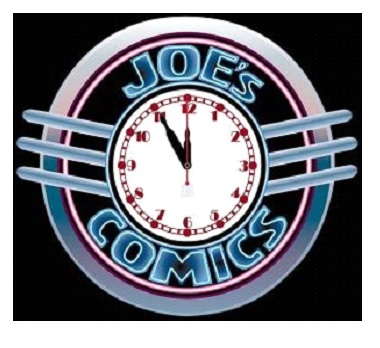 The thing about working in TV or film is that you get typecast really freaking fast. Before “Babylon 5” I was tagged as a mystery or police-procedural writer; after “B5” I was put into the science fiction writer category.
The thing about working in TV or film is that you get typecast really freaking fast. Before “Babylon 5” I was tagged as a mystery or police-procedural writer; after “B5” I was put into the science fiction writer category.With Joe’s Comics, I wanted the freedom to tell whatever kind of story I wanted in any genre, from superhero stuff in RISING STARS, to more horror/action with MIDNIGHT NATION, or dark fantasy in the DELICATE CREATURES GN. It was just a blast.
OD: The name Joe’s Comics is fairly obvious; what’s less apparent is your neon diner clock logo and slugline “where it’s always 5 minutes to midnight.” Like the clock, can you illuminate for us?
JMS: I called it Joe’s Comics because, well, they were by me, and it had a friendly, down-home ring to it, like a diner (hence the logo).
The first ads read Read at Joe’s, Where It’s Always Five Minutes to Midnight. I like art deco, which explains the design, and a night owl, I’m always up until 3-4 in the morning, sometimes diving out to a late-night diner for a bite, so I kind of associate that image with working late.
Finally, though I start writing each night at around 7-8 p.m. and go through nearly to dawn, it’s just as the clock starts to hit midnight that I really feel the engines kick on in a serious way. There’s just something magical about that moment right before midnight when I know the trouble’s about to start in earnest. So that’s how that image came about.
OD: There’s some pretty nefarious scuttlebutt on the internet about your prior relationship with Top Cow/Image. Assuming at least a modicum of the rumors are true, what’s different about the relationship this time around that allowed you to assuage those prior shenanigans?
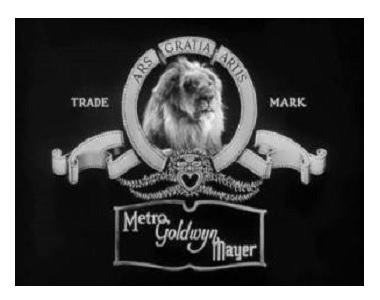 JMS: It wasn’t so much the relationship, per se, as a very specific situation that turned the whole thing upside-down. MGM had optioned RISING STARS, and I’d signed to write the first draft of the movie. I did my draft, and some revisions, and the studio decided to go to two other writers for a rewrite. Fair enough. I’d taken my shot at the screenplay, I wasn’t yet known as a movie writer — that would have to come much later — so they were well within their rights to move on. No problem.
JMS: It wasn’t so much the relationship, per se, as a very specific situation that turned the whole thing upside-down. MGM had optioned RISING STARS, and I’d signed to write the first draft of the movie. I did my draft, and some revisions, and the studio decided to go to two other writers for a rewrite. Fair enough. I’d taken my shot at the screenplay, I wasn’t yet known as a movie writer — that would have to come much later — so they were well within their rights to move on. No problem.But, my contract specifically stipulated that I was to be kept informed, and to receive copies of every draft as they came in. Months passed. I kept asking Top Cow if any drafts or outlines had come in. They said no. Repeatedly. Then, one night, I was at the airport in Vancouver (where I was producing “Jeremiah” for Showtime), about to get on a plane to LA, when I ran into the producer, who’d been in town on other projects. I asked how it was going and he said they were waiting for the second draft, which they expected in a week or so. Meaning there had been a first draft, and notes, and meetings, and I’d not been informed about any of it.
I raised hell about it, and was told, in fairly concise terms, to go pound sand. So I did the only thing I could do: I went on strike, refusing to deliver the last issues of RISING STARS until this was resolved. In time, it did get resolved, and the book started coming out again, but it kind of ruined the whole relationship. When it came time for MGM to renew the rights, I opted not to do so, and have held onto those rights (and the film rights to MIDNIGHT NATION) ever since. (At one point they offered nearly a million bucks to buy out all the rights, money I could have used, but I said no.) In my original deal with Top Cow, I’d traded away all future residuals in both projects in order to keep my ownership of the film/TV rights. It was the right deal to make, and I’d make it again today.
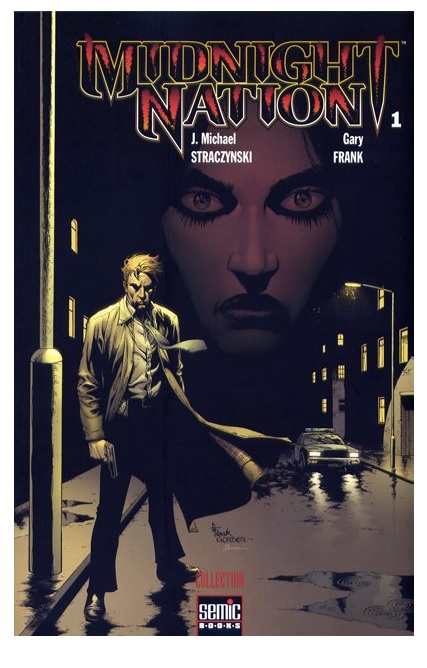 It was in the midst of all this that Marvel offered me THE AMAZING SPIDER-MAN, which was then languishing in the midst of Marvel’s post-bankruptcy woes, and began a seven year run on that title. For most of that, Marvel left me pretty much to my own devices, and I enjoyed the hell out of it. It was only later, here and in other titles, that the Hollywoodization of comics started to become apparent, with huge crossover events that kept blowing up the stories that I was trying to tell in various individual titles. As I’ve said elsewhere, I’m okay with big events if they work to promote and enhance the individual titles; the specific titles shouldn’t be held hostage to, or destroyed by, the events.
It was in the midst of all this that Marvel offered me THE AMAZING SPIDER-MAN, which was then languishing in the midst of Marvel’s post-bankruptcy woes, and began a seven year run on that title. For most of that, Marvel left me pretty much to my own devices, and I enjoyed the hell out of it. It was only later, here and in other titles, that the Hollywoodization of comics started to become apparent, with huge crossover events that kept blowing up the stories that I was trying to tell in various individual titles. As I’ve said elsewhere, I’m okay with big events if they work to promote and enhance the individual titles; the specific titles shouldn’t be held hostage to, or destroyed by, the events.From time to time, I considered reviving the Joe’s Comics imprint so I could have the fun of doing my own thing as counterpoint to the more disciplined mainstream books, but didn’t think I was ready yet to go back there. Then, about two years ago, I decided to take a hiatus from monthly comics, doing only miniseries and GNs like SUPERMAN: EARTH ONE. I wanted to use that time to go over every book I’d written — and there are over 300 of the things — and every review of my work, good or critical, especially the critical ones, in order to improve my storytelling. If I couldn’t do that, if I couldn’t come back to monthly comics even a step or two ahead of where I’d been before as a writer, then I felt I shouldn’t do it.
Finally, I reached the point where I felt I’d done enough navel-gazing, had sharpened the tools in my toolbox, and was ready for a return to monthlies.
OD: If you don’t mind sharing, I think fans would like to hear some of these epiphanies that sharpened your storytelling saw. Care to expand?
JMS: Here’s a good example. One reviewer said of a particular book I’d done, “I find it interesting but not compelling.”
I really took that to heart. It made me realize that I sometimes bifurcate my writing into “idea stories” and “character stories.” I’d get so caught up in the idea or the technology or the device that I’d explore all these interesting (to me, anyway) philosophical or social ideas and basically vanish up my own ass in terms of keeping the action going, and moving the character along. I think that’s probably the science fiction guy in me…oooh, a bright shiny toy….
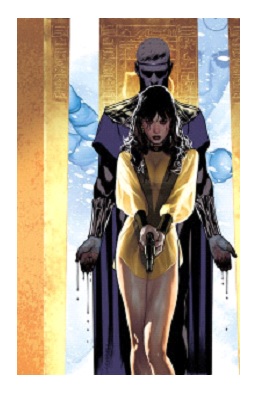 One place I implemented that was in the DR. MANHATTAN story, where I had a nifty idea about doing a quantum mechanics story, which could easily go dry, and worked doubly hard to tie it into Jon Osterman’s history and relationships. The result is much stronger, I think, for having not just received that criticism but listening to it and being open. (And I took it one step further, doing something crazy with the layout of that book to tie into the themes that I don’t think has been done before.)
One place I implemented that was in the DR. MANHATTAN story, where I had a nifty idea about doing a quantum mechanics story, which could easily go dry, and worked doubly hard to tie it into Jon Osterman’s history and relationships. The result is much stronger, I think, for having not just received that criticism but listening to it and being open. (And I took it one step further, doing something crazy with the layout of that book to tie into the themes that I don’t think has been done before.)OD: So next step was to put those insights into action?
JMS: This was when I hit the idea of launching Studio JMS, to do (for lack of a better term) creator-owned movies and TV shows. We’ve already sold a series with a 13 episode commitment, have a movie in prep for this fall, a web-series and an online GN for MTV.com. As part of the larger entity that is Studio JMS I decided to revive the Joe’s Comics imprint, and sent a note to Eric Stephenson indicating my interest in bringing it to Image.
Eric was extremely gracious and helpful, and flew down to LA for the afternoon so we could meet at Art’s Deli in Studio City and discuss it in more detail. By the time we left, the deal had been set.
OD: So is the sub-brand of Joe’s Comics within Studio JMS a way to keep the comic IP’s immune from Holly’s Wood getting inserted into a creator’s uncomfortable place? Example: When I was selling my book, I negotiated with five IP gurus. Each time the whiff of a cartoon, game, movie or anything more lucrative than comic sales came into play all talk about how we would produce the comic stopped.
JMS: Here’s the nifty thing about the whole Studio JMS situation: I’m already doing movies, and TV shows, and web series. I don’t need to make these books into idea farms for any of those things. If I want to write a movie, I write a movie; I don’t have to go comic book to option to treatment to script. Could these books be good TV shows or films? Sure. But that has to come second in the creative process. They need to be good books on their own terms, first and foremost.
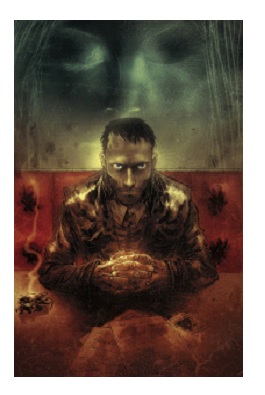 I created Joe’s Comics to have fun with comics, and tell stories I want to tell in and for that medium. My agent gets calls every month from producers wanting to option or outright buy MIDNIGHT NATION or RISING STARS. And every time, I say no. Maybe someday, sure, maybe even through Studio JMS, but honestly, I’m just really happy with those books being, well, books.
I created Joe’s Comics to have fun with comics, and tell stories I want to tell in and for that medium. My agent gets calls every month from producers wanting to option or outright buy MIDNIGHT NATION or RISING STARS. And every time, I say no. Maybe someday, sure, maybe even through Studio JMS, but honestly, I’m just really happy with those books being, well, books.OD: Speaking of movies, you just got your first directing gig, right? How do you feel moving from telling actors what to say to how to say it? Are you pouring through Stanislavsky as we speak (I still have all the volumes from college and my senior thesis – please take them)?
JMS: In some ways it’s a big jump and in some ways it’s not. As a producer on TV shows, I would invariably get involved in every aspect of production, from casting to working with the directors to talking through character and motivation with the actors. And I’ve directed before in TV, twice on “Babylon 5” in particular. But going from that to a full-fledged feature film, with a substantial budget, period settings, big cast and big story, yeah, it’s both exciting and daunting.
I’ve always lived by the code that says “push yourself beyond what you’ve done before, take chances, risk.” Amazing things happen that way. I mean, how many guys in their 50s get their first chance to direct a feature? Not many. Fortunately, having worked with some amazing directors, and spending hundreds of hours in editing suites laboring over every frame of the shows I’ve done, I have a pretty solid idea of what I’ll need to shoot, so I’m a very economical director. I shoot to my cutting pattern. So I get to walk onto the set with hundreds of hours of related experience under my belt, and that’s a huge help. I feel very confident about it (always the first sign of psychosis).
In fact, as I finish this interview, I’m sitting in a hotel in Berlin during the Berlin Film Festival, meeting with distributors and nailing down the last of our crew (wardrobe, camera, production design, etc.).
OD: Most of the wordsmithing for Joe’s Comics is on your broad shoulders. Any plans to produce other creative voices akin to the “Skybound” model?
JMS: Right now I’m writing them all, but in time, should the books continue, we’d bring on other writers to work on some of these from detailed outlines. But some of them I just don’t want to let go of. That’s the crazy part about starting a business like this: you create something so you can write what you want, but then the day-to-day business aspects give you less time to write what you want. So what I’d like is to get the company to a point where it’s more or less running itself, and I can just sit behind a keyboard and have fun.
It’s a big dream, but y’know, where is it written that our dreams have to be small?
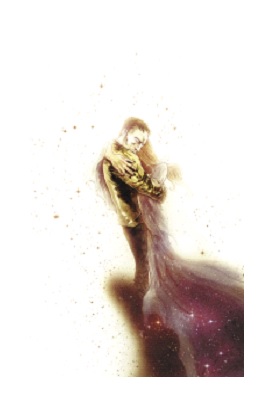 OD: When will Joe’s Comics officially launch and what will be the first title(s)?
OD: When will Joe’s Comics officially launch and what will be the first title(s)?JMS: The official launch will take place at C2E2 in Chicago April 26-28 with issue one of TEN GRAND, with an alternate cover and interior art by the amazing Ben Templesmith. We’ll be giving out a convention special limited edition of issue one, which will appear in stores the following week with a variant cover by Bill Sienkiewicz. We’re also doing some special, secret things in regard to the release of that first issue that will be very cool and interesting.
OD: Anything involving a channel that rhymes with Schmocial Schmedia?
JMS: No, actually, it’s something else. You’ll see.
OD: What’s after TEN GRAND?
JMS: TEN GRAND will be followed by SIDEKICK, drawn by Tom Mandrake, which will debut at San Diego Comic Con. Then comes ALONE (which will have an A-list artist who we’re still negotiating with but hope to announce soon), and PROTECTORS INC., drawn by Gordon Purcell.
Our plan with each of these titles is to do them in runs of 12 issues, with a pause of two months or so between series, much as the BBC does with its TV series. This will allow us to recalibrate where needed, build up inventory to ensure the book stays on schedule once it comes back, and keep the quality where it needs to be.
We’ve actually been quietly stockpiling scripts and art way in advance so that we don’t miss pub dates. Even though the first issue of TEN GRAND doesn’t debut until April 2013, we had that issue done and in hand December 2012.
The great thing about doing these books is that there’s no outside interference, no editorial mandate, no corporate agenda, no goal other than to tell really cool stories. If a story runs 12 issues and we feel that it’s told itself sufficiently, we’re done. If it has more to tell of itself, we’ll keep it going. We don’t have a need to keep something going indefinitely. It’s about telling that story, not filling that quota.
OD: Look for TEN GRAND from Joe’s Comics in April 2013!
Optimous Douche has successfully blackmailed BottleImp to draw purty pictures for his graphic novel AVERAGE JOE coming out in 2013 from COM.X. When not on Ain’t It Cool, Optimous can be found talking comics and marketing on robpatey.com and just marketing on MaaS360.com.
Proofs, co-edits & common sense provided by Sleazy G
